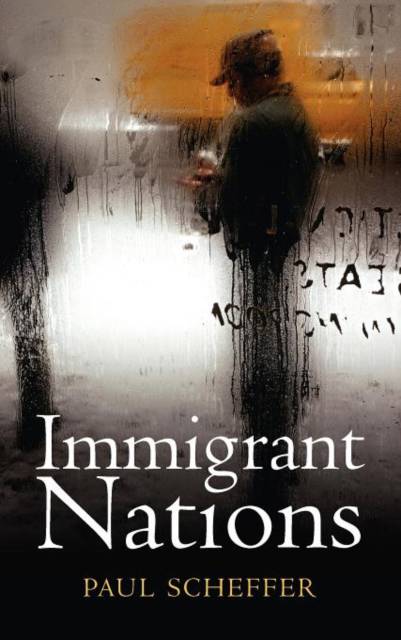
- Retrait gratuit dans votre magasin Club
- 7.000.000 titres dans notre catalogue
- Payer en toute sécurité
- Toujours un magasin près de chez vous
- Retrait gratuit dans votre magasin Club
- 7.000.0000 titres dans notre catalogue
- Payer en toute sécurité
- Toujours un magasin près de chez vous
Description
This book is a major reassessment of how immigration is changing our world. The policies of multiculturalism that were implemented in the wake of postwar immigration have, after 9/11, come under intense scrutiny, and the continuing flow of populations has helped to ensure that immigration remains high on the social and political agenda.
Based on his deep knowledge of the European and American experiences, Scheffer shows how immigration entails the loss of familiar worlds, both for immigrants and for host societies, and how coming to terms with a new environment evolves from avoidance through conflict to accommodation. The conflict that accompanies all major migratory movements is not a failure of integration but part of a search for new ways to live together. It prompts an intensive process of self-examination. That is why immigration has such a profound existential impact: it goes to the heart of institutions like the welfare state and liberties like the freedom of expression.
Scheffer argues that our ability to cope with the challenges posed by immigration requires that we move beyond multiculturalism and find a new balance between openness and exclusion. Tolerance cannot be based on avoidance but should rest on the principle of reciprocity, which means that native populations cannot ask of newcomers any more than they themselves are prepared to contribute.
This principled and path-breaking book will establish itself as a classic work on immigration and will be an indispensable text for anyone interested in one of the most important social and political issues of
our time.
Based on his deep knowledge of the European and American experiences, Scheffer shows how immigration entails the loss of familiar worlds, both for immigrants and for host societies, and how coming to terms with a new environment evolves from avoidance through conflict to accommodation. The conflict that accompanies all major migratory movements is not a failure of integration but part of a search for new ways to live together. It prompts an intensive process of self-examination. That is why immigration has such a profound existential impact: it goes to the heart of institutions like the welfare state and liberties like the freedom of expression.
Scheffer argues that our ability to cope with the challenges posed by immigration requires that we move beyond multiculturalism and find a new balance between openness and exclusion. Tolerance cannot be based on avoidance but should rest on the principle of reciprocity, which means that native populations cannot ask of newcomers any more than they themselves are prepared to contribute.
This principled and path-breaking book will establish itself as a classic work on immigration and will be an indispensable text for anyone interested in one of the most important social and political issues of
our time.
Spécifications
Parties prenantes
- Auteur(s) :
- Editeur:
Contenu
- Nombre de pages :
- 300
- Langue:
- Anglais
Caractéristiques
- EAN:
- 9780745649610
- Date de parution :
- 28-06-11
- Format:
- Livre relié
- Format numérique:
- Ongenaaid / garenloos gebonden
- Dimensions :
- 155 mm x 231 mm
- Poids :
- 725 g

Les avis
Nous publions uniquement les avis qui respectent les conditions requises. Consultez nos conditions pour les avis.






